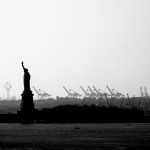As I prepared to write about how that good old Reformation hymn “A Mighty Fortress is Our God” speaks hope to a fearful, tumultuous world, a fact about its history that I didn’t know leapt off the page at me.
Not only was “A Mighty Fortress” written during great turmoil and conflict (what I already knew), but it also was written during the time of an infectious disease epidemic. Seriously. I kid you not.
Let me fill you in on the details.
In 1527, the Reformation was well underway in Germany. In 1517, Luther had nailed his 95 Theses to the door of the Wittenberg Cathedral, protesting the use of indulgences to sell of God’s free gift of grace. He has gone on to challenge the very authority of the Pope himself and to be excommunicated at the Diet of Worms in 1521. The threat of death was a very real possibility. Spirited away to safety at Wartburg Castle by the kind Elector of Saxony, Frederick III, Luther undertook the translation of the New Testament into German in 1522. When Luther emerged from Wartburg, tension began to boil amongst the reformers, particularly in relation to views of the Lord’s Supper. Luther was fighting on multiple fronts: against the Catholic Church and against his fellow reformers. He felt beset on all sides. In addition to the doctrinal conflicts which were raging at this time, Luther suffered from physical illnesses and deep, dark depressions. He went through periods of time of great spiritual darkness as well.
Eventually came the worst days of Luther’s life. “For more than a week I was close to the gates of death and hell. . . All my limbs shook. Christ was wholly lost. I was convulsed with despair and blasphemy against God.” It was a very severe depression, a night of the spirit, utterly unrelieved.
—Luther: A Life, published in 1982 by The Crossroad Publishing Company and prepared for Religion Online by Harry W. and Grace C. Adams.
Just at this time in 1527, the Black Plague re-emerged in Germany as it did from time to time during its second European pandemic. When it came to Wittenberg, local institutions and people were faced with impossible choices to stay or leave in the midst of outbreaks of disease. Luther decided to stay and help care for the sick. His son contracted the plague but recovered. His wife’s exposure to it while pregnant with their daughter Elizabeth may have weakened the baby. She died at just 5 months old.
Imagine the fear and despair that swirled around Luther at this time! The world was changing rapidly and little seemed firm or steady. He felt attacked not only by the Pope and his supporters, but also by his fellow reformers. He was going through depression and worry for his family, and then he had to confront the deadly outbreak of infectious disease.
Today the world seems similarly fearful. We have terror attacks that are incredibly visceral and personal: soldiers being gunned down, humanitarians and journalists being beheaded before a watching world, police officers being attacked by a hatchet. Mass shootings occur at schools and other public gathering places. Terror seems to reign around the world as children are kidnapped and women are raped as instruments of war. Ebola has now infected over 10,000 people and killed about half of that number; globalization means that it is a threat not only to one region of the world but to all regions of an interconnected world. The world is changing fast and people of faith are increasingly wondering if they will be irrelevant in a postmodern era. The world is a fearful place–particularly for those who live outside the privileged borders of wealthy Western democracies.
But is the world really a scarier place than it was in Martin Luther’s day? Frightening things are par for the course in a broken world. As we face up to the fear of violence, death, disease, and even irrelevance and as we face our own personal dark nights of the soul, we can turn to the robust hope that sustained the Reformers. A great musical treasure of the Reformation still speaks to us today. The treasure of which I speak is Luther’s hymn, “A Mighty Fortress.” This hymn was written sometime between 1527-1529, but most likely in October of 1527, as the plague was approaching Wittenberg. It can give us hope in the fear we face today, whether the nebulous kind or the kind that comes from actual, real-world threats.
It’s fitting that Halloween and Reformation Day occur on the same day. If it declared anything, the Reformation declared that God’s power was greater than any force of evil. If Halloween celebrates the many things we fear (sometimes innocently and sometimes less so), the Reformation tells us that fear doesn’t have the last word. Jesus does.
October 31 is a time to sing these words of hope robustly. Our God is a Mighty Fortress. We don’t have to be afraid: of ghosts, evil, mass murderers, invisible diseases, terrorists, or persecutors. Because of this, we are free to serve our neighbor without the terrible bondage of clinging to our own self-protection. All is already ours in Christ. Learning to walk in this freedom that is already ours is a life-long journey, but what a joyful one it is!
As you read the words of this hymn, picture yourself in the midst of Wittenberg with Martin Luther. Conflict and turmoil are raging all around you. You have had times when you feared for your very life because of your faith declarations. You find yourself in conflict with fellow Christians. You feel very alone at times. At times, a dark depression descends on you. And now, to make matters worse, the plague has come to your city. You find yourself doing the exhausting work of nursing the desperately ill back to health. Your own child gets the dreaded disease. Surely there are times when you are very afraid. But above it all, you declare in faith that God is your mighty fortress, your safe place. You cling to Him, instead of to your fear. You are freed to serve your neighbor despite your fear. You move forward, even in the darkness, because you are ultimately safe in Christ. Nothing in this world can take what is most important from you: Jesus.
A mighty fortress is our God,
A sword and shield victorious;
He breaks the cruel oppressor’s rod
And wins salvation glorious.
The old satanic foe,
Has sworn to work us woe,
With craft and dreadful might
He arms himself to fight.
On earth he has no equal.
No strength of ours can match his might!
We would be lost, rejected.
But now a champion comes to fight,
Whom God himself elected.
You ask who this may be?
Lord of Hosts is he!
Christ Jesus, mighty Lord,
God’s only son, adored.
He holds the field victorious.
Though hordes of devils fill the land
All threat’ning to devour us,
We tremble not, unmoved we stand;
They cannot overpow’r us.
Let this world’s tyrant rage;
In battle we’ll engage!
His might is doomed to fail;
God’s judgement must prevail!
One little word subdues him.
God’s word forever shall abide,
No thanks to foes, who fear it;
For God himself fights by our side
With weapons of the Spirit.
Were they to take our house,
Goods, honor, child or spouse,
Though life be wrenched away,
They cannot win the day.
The Kingdom’s ours forever.













